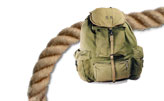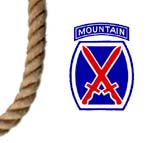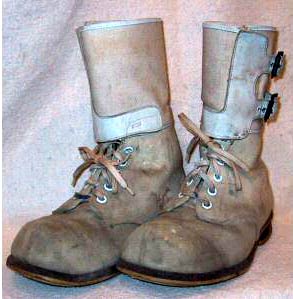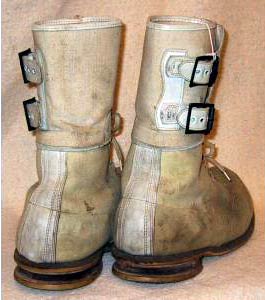 |
 |
 |
 |
 |
 |
| Seen on the Web | ||
| WORLD WAR II 10TH MTN LEATHER BOOTS | |||
 |
 |
||
Commentary |
|||
This pair of boots, described as 10th Mountain boots, is actually more of a Korean war item. They rival the 1937 Winter Cap as the item for sale on the internet that is most frequently mislabeled as mountain troop gear. The boots are actually felt, not leather as stated in this sale's description. They were designed for use in the arctic where the temperature is consistently below freezing and there is little moisture. They could be used with skis (note the groove in the heel), but they were poor ski boots when compared with the leather ski boot. Also, the smooth soles have little traction so they were poor climbing or marching boots. The predecessor to this boot, the "Shoes, Arctic, Felt," was adopted in 1943. It was essentially these boots minus the double-buckle gaiter. While it was intended mainly for arctic use, the mountain troops used them in limited quantities as a replacement for the mukluk.
|
Because the Colorado climate was not a consistently dry-cold like the arctic, the felt boots frequently got wet and lost their insulation value, so the mountain troops used them only rarely, usually as after-ski boots in the barracks. Test of the felt shoes in the arctic showed that as long as they stayed dry, they worked well. The biggest complaint was that snow entered the top of the boot unless gaiters were also worn. Suggestions were made that a built-in gaiter be added similar to the one on the M1943 combat boot. This change was approved and the improved boots were adopted in July 1945, but they came too late for anyone to use during the World War II. The Army called them "Boots, Arctic, Felt." They appear in the May 1946 QM-3 supply catalog, but really didn't get into production until the late 1940s. Most of the boots were used in Korea. The pattern with the attach gaiter was never a mountain troop item as they arrived long after the mountain troops disbanded.
|
||


